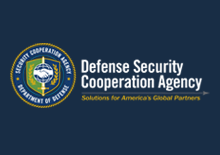DPRK Provocations Test U.S.-Japan, U.S.-ROK Alliances and Trilateral Coordination
Today, Sasakawa USA released a report on the findings of a recent tabletop exercise (TTX) involving North Korea contingencies, provocations, conventional attacks, and a nuclear detonation. The report, Testing Trilateral, U.S.-Japan, and U.S.-ROK Responses to North Korean Provocations—Tabletop Exercise Pacific Trident, concluded that, while coordination among the U.S., Japan, and ROK was effective, improvements in trilateral and bilateral communications, and incorporation of Japan’s new capabilities into trilateral planning could further enhance the ability to deter, and if necessary, defend the countries from North Korean aggression. The exercise also highlighted the need to develop a more effective strategy for dealing with non-combatant evacuations (NEO) in Korea. The results of Sasakawa USA’s report were released at a media briefing at the National Press Club in Washington, D.C.
In mid-February, Sasakawa USA, in coordination with Tokyo-based Sasakawa Peace Foundation, conducted a three-day tabletop exercise with former senior military officers, civilian defense experts, and foreign policy officials from the three nations, each of whom played roles representing the military commands and government decision-making bodies of their assigned teams. A control team oversaw the exercise and played the roles of North Korea, China, Russia, and the rest of the world.
Control Team Leader, Admiral Dennis Blair (USN, Ret.), Chairman of Sasakawa USA, said that, “Exercise Pacific Trident allowed former top leaders from the three countries to use their experience in government and the military to determine how each country might react to realistic provocations and attacks from North Korea.” Admiral Blair continued, “The results of this TTX can serve as a guide for what each nation needs to do to improve its individual, bilateral, and trilateral response to actual contingencies, which is why we have briefed them to key current policymakers and military leaders at the highest levels in all three countries.”
Operation Pacific Trident was held under “Chatham House rules” of non-attribution given the sensitivity of the issues addressed by the TTX. Below are the report’s key findings and recommendations.
Key findings:
- Trilateral coordination was successful—The TTX fostered effective trilateral consultation, planning, and coordination.
- Japan’s new defense policies proved important—The new policies allowed Japan to participate as a more equal partner in dealing with North Korean provocations.
- In likely conflicts, U.S. and allied command relationships will directly involve both Japan and South Korea—Consultation among all militaries and governments is essential in responding to North Korean provocations.
Key Recommendations:
- Develop and use a high-level trilateral coordination mechanism—Responding to North Korean provocations effectively will require the creation of a standing and familiar U.S.-Japan-Korea trilateral coordination mechanism, composed of senior government officials and military officers who have worked together in the past, and that can be convened quickly.
- Incorporate Japan’s new capabilities more fully into plans to deter and defend against North Korean aggression—These capabilities include Japan’s significant anti-submarine warfare and missile defense capabilities.
- Develop a more effective approach to non-combatant evacuation operations in Korea through trilateral consultations.
- Continue to advance flexible and adaptable U.S. command relationships in Northeast Asia and increase trilateral military channels of communication and coordination.
Copies of the report are available at this link: https://spfusa.org/research/tabletop-exercise-pacific-trident/. To view a live stream of the media briefing on the report, visit this link: https://spfusa.org/event/testing-trilateral-u-s-japan-and-u-s-rok-responses-to-north-korean-provocations-tabletop-exercise-pacific-trident/.
About Sasakawa Peace Foundation USA
Sasakawa Peace Foundation USA is an independent American non-profit, non-partisan institution devoted to research, analysis, and better understanding of the U.S.-Japan relationship. Through research and education programs, Sasakawa USA facilitates people-to-people exchange and dialogue between American and Japanese policymakers, influential citizens, and the broader public.
View source version on businesswire.com: https://www.businesswire.com/news/home/20180322005916/en/





